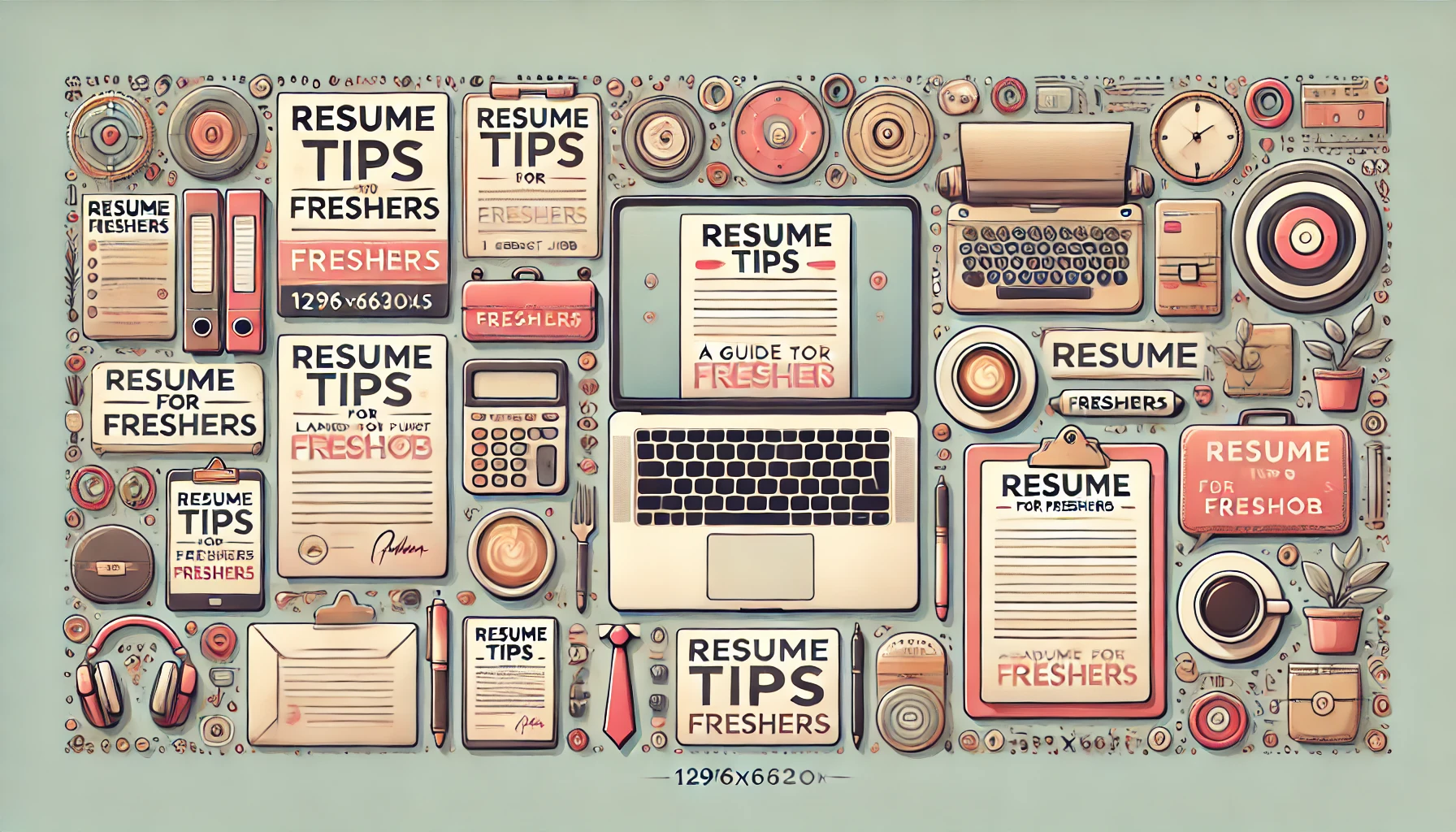Resume Tips for Freshers: A Guide to Landing Your First Job

Starting your job search can be daunting, especially as a fresher with limited experience. A well-crafted resume is crucial to make a strong first impression, communicate your skills, and demonstrate your potential to prospective employers. Here’s a detailed guide with actionable tips to create a standout resume that gets you noticed.
Choose the Right Resume Format
Selecting the appropriate format is key to presenting your experience and skills effectively. For freshers, a functional or combination format can be beneficial as it emphasizes skills and education over experience.
- Functional Format: Focuses on skills and competencies, suitable if you lack work experience.
- Combination Format: Highlights both skills and relevant projects or internships, balancing competencies with experience.
Tip: Avoid chronological resumes as a fresher, as they prioritize work experience.
Craft a Compelling Summary Statement
A summary statement, also known as a career objective, is a brief introduction that highlights your aspirations, strengths, and value to a potential employer. It should be concise and reflect your enthusiasm.
- Example: “Passionate Computer Science graduate with hands-on experience in web development and a strong foundation in Java and Python. Eager to bring innovative ideas and solutions to a dynamic team and grow within a reputable tech company.”
Tip: Avoid generic phrases like “seeking a challenging role.” Tailor the summary to each job application to make a stronger impact.
Highlight Your Skills and Competencies
As a fresher, your skill set is a crucial part of your resume. This section should list relevant skills that align with the job description. Divide your skills into technical and soft skills for clarity.
- Technical Skills: Mention programming languages, software, tools, and any relevant technologies.
- Soft Skills: Highlight interpersonal skills like communication, teamwork, and problem-solving, which are valuable across industries.
Tip: Use bullet points to make this section easy to read, and prioritize skills that match the job posting.
Emphasize Education and Academic Achievements
Your educational background should be placed prominently, as it demonstrates foundational knowledge. Include relevant academic achievements, scholarships, and coursework.
- What to Include: Degree, institution, graduation date, and relevant coursework or projects.
- Optional: GPA (if impressive) or academic honors.
Tip: List any certifications or training that align with the industry, like certifications in digital marketing, software development, or data analysis.
Leverage Internship and Project Experience
Internships and college projects are valuable for freshers as they showcase practical experience. Describe these experiences with a focus on your contributions, responsibilities, and outcomes.
- How to List Internships: Mention the company name, role, duration, and responsibilities.
- Example: “Developed a content management system using React and Node.js during a 3-month internship, resulting in a 20% increase in content publishing efficiency.”
Tip: Use action verbs (e.g., “developed,” “led,” “analyzed”) to make descriptions more impactful.
Include Relevant Extracurricular Activities
Involvement in extracurricular activities can illustrate leadership, teamwork, and organizational skills. List relevant roles like club memberships, volunteer work, or event management.
- Example: “Led a team of 5 students in organizing a coding bootcamp that attracted over 100 participants.”
Tip: Only include activities that demonstrate skills relevant to the job.
Add a Section for Certifications and Training
Any additional certifications, online courses, or industry-specific training can set you apart. Include those that align with the job requirements, as they demonstrate a commitment to personal development.
- Examples: Google Analytics Certification, AWS Training, Data Science Specialization from Coursera.
Tip: Make sure the certifications are current and recognized in the industry.
Optimize Your Resume with Keywords
Many companies use Applicant Tracking Systems (ATS) to screen resumes. To improve your chances, use keywords that match the job description. Look for specific skills, tools, or qualifications mentioned in the listing and incorporate them naturally into your resume.
Tip: Avoid keyword stuffing. Integrate keywords into the skills, experience, and summary sections.
Format Your Resume Professionally
Presentation matters. An organized and clean format makes your resume easy to read and professional.
- Font and Font Size: Use a professional font like Arial, Times New Roman, or Calibri in size 10-12.
- Margins and Spacing: Maintain standard margins and space sections clearly for readability.
- File Format: Save the resume as a PDF to preserve formatting across devices.
Tip: Use bullet points, avoid long paragraphs, and keep the resume to one page if possible.
Proofread and Review Thoroughly
Typos and grammatical errors can hurt your credibility. Proofread your resume or use a tool like Grammarly to catch errors. Ask a friend, mentor, or family member to review it with fresh eyes for feedback.
Tip: Double-check all contact details to ensure accuracy.
Final Thoughts
Creating a resume as a fresher may seem challenging, but by focusing on your strengths, relevant skills, and academic achievements, you can present a strong case to potential employers. Remember, your resume is a reflection of your professionalism and potential, so invest the time to make it exceptional.
Tailor each application to the job you’re applying for, maintain a professional format, and showcase your enthusiasm for growth. With these tips, you’ll be well on your way to landing interviews and starting your career journey with confidence.
FAQs
1. Should I include a photograph on my resume?
- In most industries, a photograph is not necessary and could lead to unintended bias. Stick to professional formatting without images unless explicitly requested.
2. What if I don’t have any internships?
- Focus on academic projects, certifications, and volunteer work that showcase relevant skills or industry knowledge.
3. How long should my resume be?
- As a fresher, aim to keep your resume to one page. Focus on concise, relevant information and avoid unnecessary details.
By following these tips, freshers can craft a resume that highlights their strengths and captures the attention of hiring managers.